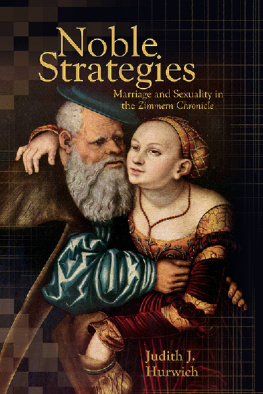Helen Zimmern - The Hanseatic League - A History of the Rise and Fall of the Hansa Towns (Illustrated)
Here you can read online Helen Zimmern - The Hanseatic League - A History of the Rise and Fall of the Hansa Towns (Illustrated) full text of the book (entire story) in english for free. Download pdf and epub, get meaning, cover and reviews about this ebook. year: 2015, publisher: Didactic Press, genre: History. Description of the work, (preface) as well as reviews are available. Best literature library LitArk.com created for fans of good reading and offers a wide selection of genres:
Romance novel
Science fiction
Adventure
Detective
Science
History
Home and family
Prose
Art
Politics
Computer
Non-fiction
Religion
Business
Children
Humor
Choose a favorite category and find really read worthwhile books. Enjoy immersion in the world of imagination, feel the emotions of the characters or learn something new for yourself, make an fascinating discovery.
- Book:The Hanseatic League - A History of the Rise and Fall of the Hansa Towns (Illustrated)
- Author:
- Publisher:Didactic Press
- Genre:
- Year:2015
- Rating:3 / 5
- Favourites:Add to favourites
- Your mark:
- 60
- 1
- 2
- 3
- 4
- 5
The Hanseatic League - A History of the Rise and Fall of the Hansa Towns (Illustrated): summary, description and annotation
We offer to read an annotation, description, summary or preface (depends on what the author of the book "The Hanseatic League - A History of the Rise and Fall of the Hansa Towns (Illustrated)" wrote himself). If you haven't found the necessary information about the book — write in the comments, we will try to find it.
Helen Zimmern: author's other books
Who wrote The Hanseatic League - A History of the Rise and Fall of the Hansa Towns (Illustrated)? Find out the surname, the name of the author of the book and a list of all author's works by series.
The Hanseatic League - A History of the Rise and Fall of the Hansa Towns (Illustrated) — read online for free the complete book (whole text) full work
Below is the text of the book, divided by pages. System saving the place of the last page read, allows you to conveniently read the book "The Hanseatic League - A History of the Rise and Fall of the Hansa Towns (Illustrated)" online for free, without having to search again every time where you left off. Put a bookmark, and you can go to the page where you finished reading at any time.
Font size:
Interval:
Bookmark:
THE
HANSEATIC LEAGUE
AHistory of the Rise and Fall of the Hansa Towns
BY
HELEN ZIMMERN

Published by Didactic Press
2015
www.didacticpress.com
DidacticPress is an independent publisher based out of San Diego, CA. Our mission is toprovide inexpensive classic and original works of history, philosophy,biography, and every genre of fiction.
10 9 8 7 65 4 3 2 1 0 00 000 0000
Those who dont know history are destined to repeatit.
Edmund Burke
TABLE OF CONTENTS

Dominion of the Hansa
XIII-XV Centuries
There is scarcely amore remarkable chapter in history than that which deals with the tradingalliance or association known as the Hanseatic League. The League has longsince passed away, having served its time and fulfilled its purpose. The needsand circumstances of mankind have changed, and new methods and new instrumentshave been devised for carrying on the commerce of the world. Yet, if the Leaguehas disappeared, the beneficial results of its action survive to Europe, thoughthey have become so completely a part of our daily life that we accept them asmatters of course, and do not stop to inquire into their origin. To us modernsit seems but natural that there should be security of intercourse betweencivilized nations, that highways should be free from robbers, and the oceanfrom pirates. The mere notion of a different state of things appears strange tous, and yet things were very different not so many hundred years ago.
In the feudal times theconditions of life on the continent of Europe seem little short of barbarous.The lands were owned not only by the kings who ruled them with an iron despotism, but were possessed besides byinnumerable petty lordlings and princelets, who on their part again exercised arule so severe and extortionate that the poor people who groaned under it werein a condition little removed from slavery. Nay, they were often not eventreated with the consideration that men give their slaves, upon whom, as theirabsolute goods and chattels, they set a certain value. And it was difficult forthe people to revolt and assert themselves, for however disunited might betheir various lords, in case of a danger that threatened their universal power,they became friends closer than brothers, and would aid each other faithfullyin keeping down the common folk. Hand in hand with princes and lords went thepriests, themselves often worldly potentates as well as spiritual rulers, andhence the very religion of the carpenter's son, which had overspread thecivilized world in order to emancipate the people and make men of all nationsand degrees into one brotherhood, wasnot for the first time in itshistoryturned from its appointed course and used as an instrument of coercionand repression.
Such briefly was thecelebrated feudal systema system whose initial idea that the rich man shouldprotect the poor, that the lord should be as a father to his vassals, is wiseand good, but which in practice proved itself untenable. Even to-day, aftermany centuries and generations, the only European nations that have whollysucceeded in casting off the feudal yoke are those in whose history an entirelysubversive revolution, like the French, has taken place. In others, notwithstanding years of struggle and revolt, not only itsmemory, but some of its customs, still survive; for systems and institutionsdie hard, and continue to exercise mischievous power long after their originalforce is spent. To this survival can be traced a large number of the evils thatare agitating contemporary Europe; for example, the wretched state of Ireland.
That the people ofGermany, the country with which we have chiefly to deal in treating of theHanseatic League, was not wholly enslaved and crushed out of all individualexistence by the state of things that reigned from the Baltic to the Alps inthe early years of its history is due to the two great factors of memory andheredity. Memory, because when Tacitus, that most dramatic of historians, wrotehis famous book on Germany, one of the chief points he noted in this land wasthat there existed an equality among the freeborn, an absence of rank andconcentration of power. Heredity, because a love of individual freedom appearsas an inherent quality in the Teutonic race from their first appearance inhistoric legend.
"Though the mills of God grind slowly
Yetthey grind exceeding small,"
sings the poet, and allthe ages have confirmed the experience that might is not suffered to be rightfor ever, that vengeance falls and justice asserts itself, even though thewrong be not righted, or the evil avenged for many a long year after the sinhas been committed.
"Whom the godswould destroy they first strike withmadness," says the Latin proverb. It was so with the ambitious rulers ofGermany. They were not content to be sovereigns of their own empire, theydesired also to hold in their hand the reins of Italy; the bestowal of thetitle Holy Roman Emperor by the Pope Leo III. upon Charlemagne moved theirlonging and cupidity, so that gradually they grew more occupied with thebusiness of the fair peninsula, "the garden of the Empire," as Dantecalls it, than with the condition of their own ruder and sterner fatherland.Added to this they took to fighting among themselves, being divided into tworival factions which elected opposing rulers, the result being that often noone knew who was head or who was subject.

IMPERIALCROWN OF GERMANY.
Frederick Barbarossawas the last to uphold the real authority and power of Germany. He was a truehero of romance, one of the noblest expressions of the medival character. Whenhe died the real empire fell. What remained was but a semblance and a ruin, andit is little wonder that Germany plunged henceforth into yet greater anarchy,invented the legend that peace and prosperity would not return to her untilFrederick Red Beard should come back to rule, that giant among men, falselyreported dead, but who, in truth, was merely resting, sunk in enchanted sleep amongthe mountains of Bavaria. There he was waiting the hour when the ravens should cease to hover around the cloud-capped peak to emergesurrounded by the trusty Crusaders who shared his slumbers and restore toGermany the golden age of peace and strength.
It is claimed by somethat Barbarossa has so returned, that he came back as recently as 1870, butwhether this be fact or no does not concern us here. What does concern us is,that in the reign of Frederick Barbarossa we find mentioned, for the first timeas a power in the State, a few of the many German cities that had arisen underthe fostering protection of Henry the Fowler. Barbarossa found it useful toencourage the growth of that third estate so needful to the healthy existenceof the body politic. Thus he could pit them against the nobles when it pleasedhim to harass his sometime allies; he could also draw from them the moneys thatare the sinews of war. In return for such loyal aid the emperor freely grantedmunicipal institutions, rights and privileges, exemptions and favours, littlerealizing that in so doing he was creating in his own land that very spirit ofindependence, that breath of modern individual freedom, to quench which he wasspending his best years and strength beyond the barrier Alps.
The policy therefore ofthe "imperial knights" and "knightly emperors" who precededand followed Frederick, while in one way it tended to destroy the unity ofGermany as a political state, in the other was the means by which the cities ofGermany, as well as those of Northern Italy, acquired that remarkableindependence, that rapid, splendid commercial and intellectual development thatraised them to the condition of almost autonomouscommunities, and made them the wonder, glory, and pride of the Middle Ages.Citizens and burghers became freemen, and enjoyed the privileges that fell tothis lot. Hence men loved to crowd into the towns, and these grew up andflourished apace, until they acquired such power and assumed such proportionsas their first promoters little contemplated.
Font size:
Interval:
Bookmark:
Similar books «The Hanseatic League - A History of the Rise and Fall of the Hansa Towns (Illustrated)»
Look at similar books to The Hanseatic League - A History of the Rise and Fall of the Hansa Towns (Illustrated). We have selected literature similar in name and meaning in the hope of providing readers with more options to find new, interesting, not yet read works.
Discussion, reviews of the book The Hanseatic League - A History of the Rise and Fall of the Hansa Towns (Illustrated) and just readers' own opinions. Leave your comments, write what you think about the work, its meaning or the main characters. Specify what exactly you liked and what you didn't like, and why you think so.







